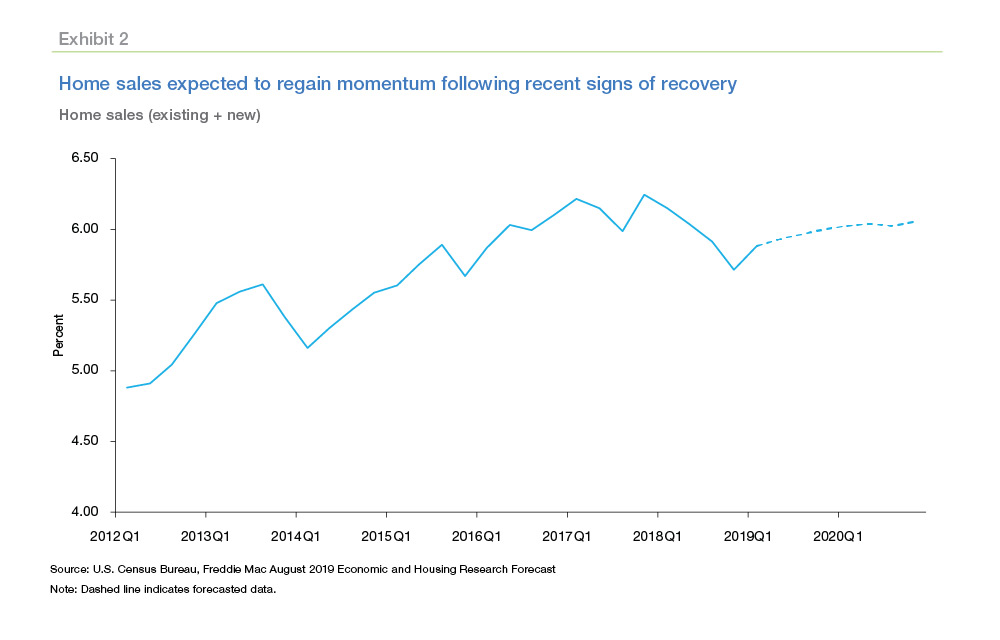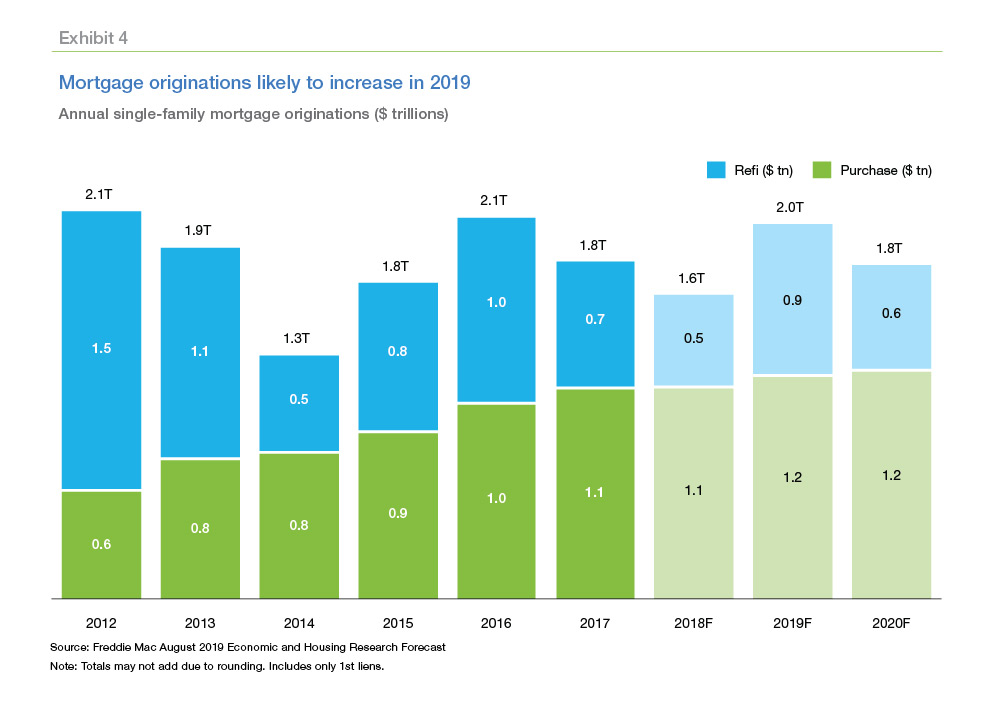Housing led the way into the last recession, now Freddie Mac's economists are suggesting it might help stave off the next one or at least modify its severity. In its August Forecast, the company says a deteriorating global economy and on-going US trade disputes with multiple countries has led to a drop in long-term interest rates to a three-year low and has "poised housing to reaccelerate."
The report says to expect a significant increase in refinance originations and the combination of low rates, a tight labor market and strong consumer confidence to offset declining business sentiment. "These factors will set the stage for continued improvement in the housing market heading into the fall."
But economic growth will slow. With the effects of tax cuts and fiscal stimulus that stoked growth in 2018 fading, Fannie Mae expects growth of 2.2 percent this year, decelerating to 1.8 percent in 2020. Consumer price inflation will remain at 2.4 and 2.3 percent in the last two quarters of the year and will edge down to 2.0 percent in 2020. The labor market will remain strong with an unemployment rate of 3.7 percent for the rest of the year, increasing to 3.8 percent next year.
The U.S. is not alone when it comes to low interest rates. Long-term government bond yields have fallen with the increased global uncertainty and are below zero in many European countries. In Denmark, for example, its 30-year fixed-rate mortgage (FRM) has fallen as low at 0.5 percent, demonstrating the enormous downward pressure on long-term rates everywhere.
Thus, Freddie's economists have revised their forecasts for the 30-year FRM. They expect the current rate to remain at 3.6 percent through the second quarter of next year and have reduced their average annual projections for the second time in 30 days. Their late July revision to 4.1 percent this year and 4.0 percent in 2020 is now at 3.9 percent and 3.7 percent respectively.

They have revised other rate estimates downward as well. With the expectation of further Fed rate cuts in the last half of this year and again in 2020, they predict an effective Federal Funds rate of 2.1 percent in the third and fourth quarters and an annual rate of 2.3 percent for 2019 and 2.0 percent in 2020. The 10-year Treasury yield will be down to 2.2 percent on average this year as foreign investors move to the American bond market and to decline to 1.8 percent next year. Maintaining a spread between yields, the 1-year Treasury rate will be 2.1 percent this year dropping to 1.7 percent in 2020.
The economists expect housing starts to recover from their 2018 slump. Builder confidence should support 1.25 million housing starts this year and 1.28 million next year. Current mortgage rates along with increased demand and a projected uptick in housing supply have brought optimism that sales will recover in the second half of 2019 and reach 5.94 million this year then almost recover to 2017 levels in 2020, at 6.04 million.

The forecast says the strong data over the last few months provides guidance for house prices to continue to beat expectations in the coming months. They should appreciate 3.4 percent this year and then taper off to 2.6 percent next year.
With lower mortgage rates, refinancing should increase significantly from what Freddie Mac forecast in July. The Mortgage Bankers Association's Refinance Index has increased by 50 percent in the last month and Freddie Mac says this reinforces its belief in the strength of the refinance market. They expect that share of originations to grow to 43 percent in 2019 and 33 percent in 2020. As purchase originations have recently seen a rate-driven increase they also expect those to be higher, with a total mortgage volume of $2 trillion this year and $1.8 trillion in 2020.








